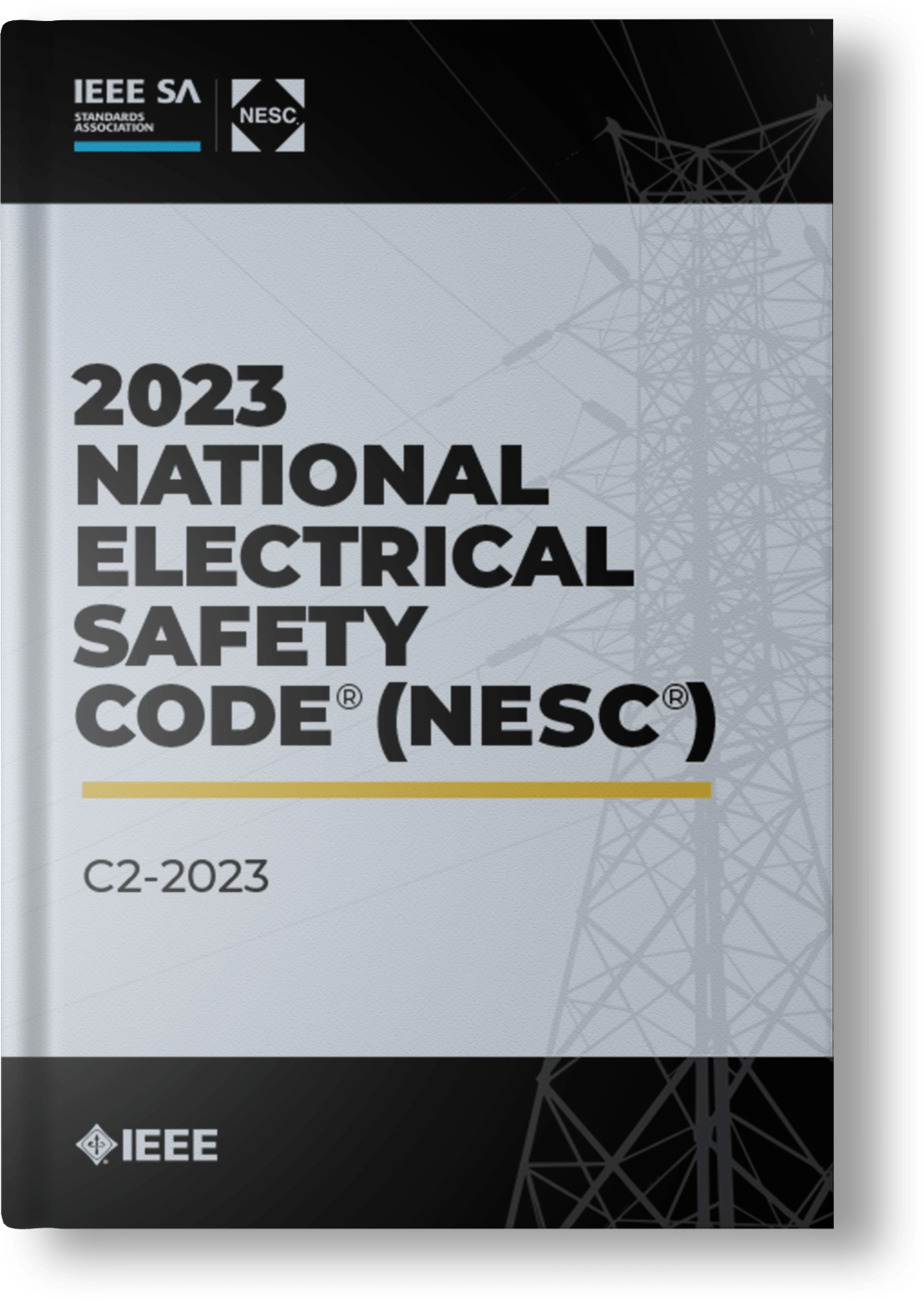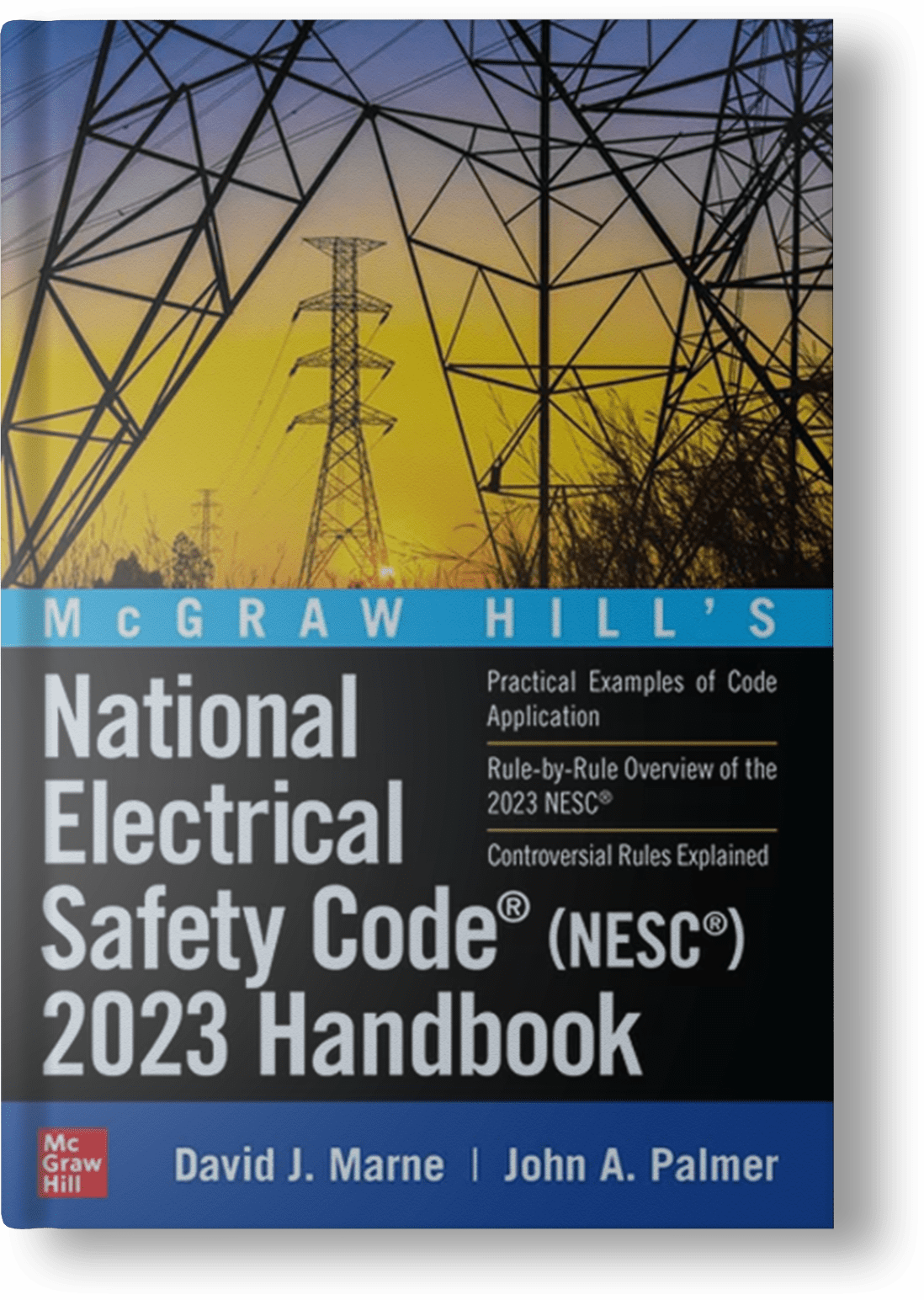-
Explore IKE
IKE Products
-
Resources
Blogs & Resources
-
Company
About ike
- CompanyLearn what IKE is all about, including our mission and values
- The IKE TeamIndustry experts and exceptional individuals: meet the IKE Team
- InvestorsFinancial information, Market Announcements, Leadership & Governance
- NewsWhat’s new in the world of IKE
- Contact UsReach out with any questions or feedback
-
The PoleOS™ Company
ikeGPS and Marne & Associates
National Electrical Safety Code® (NESC®) for Day-to-Day Utility Work
2-day class 
(Presented online or in-person at your organization)
Gain understanding of the NESC rules
Provides a general overview of each part of the National Electrical Safety Code. Including a Day 2 focus on understanding rules found in the NESC Codebook.
Specifically designed classes
This class is designed for: Engineers, Staking Technicians, Power Lineworkers, Communication Lineworkers, Safety Personnel, and Inspectors.
Learn through practical application
Curriculum focused on practical applications supported by examples, diagrams, and conversations.
Up to date information
This class conforms to the 2023 National Electrical Safety Code®.
Interested in this class?
Get in touch with our team to get pricing and additional information on bringing the National Electrical Safety Code® (NESC) for Day-to-Day Utility Work training class to your organization.
About the Instructor

About the Instructor
Grant D. Glaus, P.E.
NESC and OSHA Training Instructor, at ikeGPS
Grant Glaus is a registered professional electrical engineer with an impressive 25 years of experience in Electric Utility Engineering, NESC, and OSHA training, and is now leading IKE's training programs. Grant brings vast knowledge and extensive background, including his role on the NESC Subcommittee 5 for Overhead Lines – Strengths and Loadings, and 15 years of experience supervising and managing the engineering department at Columbia Rural Electric Association. Before that, Grant worked with David Marne for ten years, providing consulting and NESC and OSHA training services.
About the class
National Electrical Safety Code (NESC) for Day-to-Day Utility Work is a 2-day class focusing on the rules in the National Electrical Safety Code. This class provides a general overview of each part of the NESC. Applying the Code to day-to-day work will also be stressed by focusing on practical NESC examples and applications.
During this 2-day class you will learn:
- Scope and Purpose of the Code
- Clearances of Overhead Lines
- Loading and Strength of Overhead Lines
- Underground Line Rules
- Grounding Requirements
- Supply Station Rules
- Work Rules
Continuing education units
This course provides 1.2 Continuing Education Units (CEUs) or 12 Professional Development Hours (PDHs). This class has not been registered with and State Licensing or Education Board.
Who should attend?
Attendees are not required to have prior working knowledge of the NESC. This class is designed for:
- Engineers
- Staking Technicians
- Power Lineworkers
- Communication Lineworkers
- Safety Personnel
- Inspectors
Class format and learning methods
This class is presented either in-person or online and includes:
- Real time Q&A
- Curriculum focused on practical applications supported by examples, diagrams, and conversations
- Ample time for questions and class discussion
- Exercises consisting of looking up Code Rules and applying the Rules to field construction
Class objectives
Upon successful completion of this class attendees will be able to:
01
Understand the organization, scope, purpose, and general application of the National Electrical Safety Code (NESC).
02
Apply the National Electrical Safety Code (NESC) to common situations found on overhead and underground distribution, transmission, and communication lines and in substations.
03
Recognize how the Code is integrated into design and construction standards and operating practices.
04
Identify and take action to correct Code violations and safety hazards.
05
Design and build facilities that comply with Code requirements.
06
Understand the actions needed to work safely.
07
During the 2nd Day, interact with class attendees and understand how to independently find rules in the Codebook.
08
During the 2nd Day, participate in code discussions and apply the rules in the Codebook to actual field construction situations.
Provided class materials
Attendees will receive a PDF copy of the class presentation slides. The presentation materials are copyrighted by ikeGPS with permissions from McGraw Hill LLC. Class materials are reserved for class attendees only and may not be duplicated.
Class schedule
Day 1 Agenda
8:00 a.m.
Log in and set up
8:30 a.m.
Welcome and introduction
8:45 a.m.
2023 NESC General Overview
- Introduction – Sections 01, 02, 03, 09
- The Four Parts of the NESC
- Purpose and Scope of the NESC
- NESC vs. NEC Definitions and References
- Grounding Methods for Substations and Lines
- Part 1 – Electric Supply Stations
- Substation Fences
- Safety Signs
- Storage
- Clearances
- Guards
10:15 a.m.
Break (15 min)
10:30 a.m.
Part 2 – Overhead Lines
- Joint Use Overhead Clearances
- Inspection and Tests of Overhead Lines
- Readily Climbable Structures
- Tree Clearing
- Understanding a Sag and Tension Table
- The 10 Rules of Overhead Line Clearance
- Most Popular Table in the NESC, Table 232-1
12:00 p.m.
Lunch (1 hr)
1:00 p.m.
Part 2 – Overhead Lines (continued)
- 2nd Most Popular Table in the NESC, Table 234-1
- Climbing Space and Working Space
- Joint Use Overhead Clearances Communication Worker Safety Zone
- Grades of Construction
- Overload and Strength Factors
2:30 p.m.
Break (15 min)
2:45 p.m.
Part 3 – Underground Lines
- UG Conduit vs. Direct Buried Systems
Burial Depths - Pulling Tensions and Side Wall Pressures
- Manholes and Vaults
- Joint Use Underground Installations
Part 4 – Work Rules
- NESC vs. OSHA
- Minimum Approach Distance (MAD)
- General Rules for Employers and Employees
- Additional Rules for Communication Workers
- Additional Rules for Supply Workers
4:15 p.m.
Adjourn
Day 2 Agenda
8:30 a.m.
Welcome and introduction
8:45 a.m.
Substation Examples & Exercises
10:15 a.m.
Break (15 min)
10:30 a.m.
OH Line Examples & Exercises
12:00 p.m.
Lunch (1 hr)
1:00 p.m.
OH Line Examples & Exercises
2:30 p.m.
Break (15 min)
2:45 p.m.
UH Line Examples & Exercises
4:15 p.m.
Adjourn
External resources for your training
For Day 1, attendees are encouraged (but not required) to bring a copy of the NESC Codebook and McGraw Hill’s NESC Handbook. For Day 2 of the class, attendees are required to have a copy of the 2023 NESC Codebook for class exercises. These books are available for purchase on Amazon.

2023 National Electrical Safety Code® C2-2023

